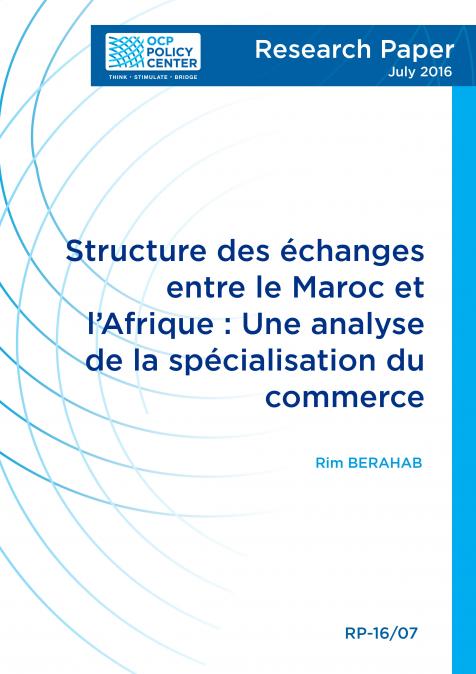Publications /
Research Paper
Au cours de la dernière décennie, le Maroc a entrepris de nombreuses réformes afin de réussir son intégration dans l’économie mondiale en général- et africaine en particulier- dans le but de diversifier et renforcer son potentiel compétitif en termes d’exportations. En effet, les échanges entre le Royaume et le continent africain ont connu une nette augmentation durant la période 2004-2014 : Le montant global des échanges avec cette région a quadruplé, passant de 1,0 milliards de dollars à 4,4 milliards de dollars. Cependant, un fort potentiel reste encore à développer vu que l’Afrique ne représente que 6,5% de l’ensemble des échanges commerciaux du Maroc. A cet effet, l’objectif de ce papier est de présenter dans une première partie une analyse descriptive de la structure du commerce entre le Maroc et l’Afrique par régions, produits et partenaires. Une seconde partie se consacre à calculer et comparer différentes variantes de l’indice des avantages comparatifs révélés du Maroc et de certains pays africains, en considérant l’Afrique comme zone de référence. Une troisième partie effectue une analyse économétrique dans le but d’étudier les éventuels changements structurels dans la spécialisation ou diversification du commerce du Maroc avec le continent africain.






